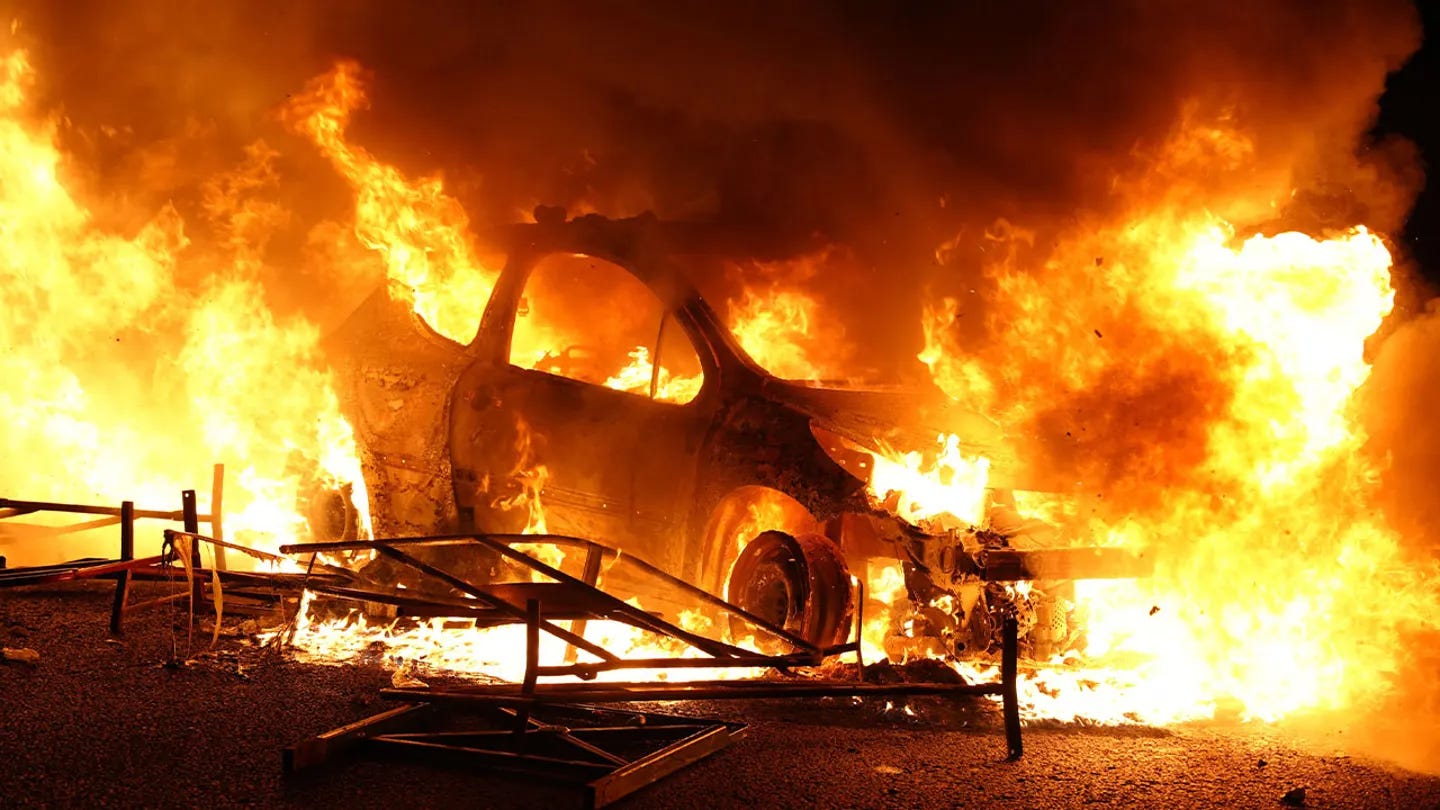A Fire in Marseille
(why a library?)
Why do people burn libraries? Why are books so hated?
I remember a standard management institute admission form question - ‘which is the book you will carry with you if deserted on an island?’
The question was never if you carry a book, it was always which book. Okay, I’m probably talking about an airy echelon, one which would involve reading as an essential accessory to achieve anything. But books, we are talking about books.
I doubt if there is any stage in my life when I’ve been without a book. Once I put down the ones I read to pass exams, there was another one in my hand which took me elsewhere. I remember a 45 day summer break where I devoured 30 books. And I knew friends all around me who were doing the same thing.
Books are religion, reading is spiritual.
Till date, my mum is irreconcilably shocked if anybody steps on a book; one which has fallen down on the floor is picked up, dusted and touched to the head - in contrition, in a symbolic way to say “don’t be angry enough to break this connection”.
Ask a reader to give a list of their five favourite books, and you will get ten names. We are our books - the ones we’ve read, the ones we haven’t. I’ve learnt more about relationships, fidelities, generosities, the human enigma, soaring, the power of fantasy, the gorgeousness of a tale well told than from any other source.
Books are a distillation, of all that we human beings have learnt and, in an automatic paroxysm of generosity, want to share. Because that is what books intrinsically are - not only repositories of tales, learnings and messages but also symbols of the largesse of the human spirit and mind.
Every book is a gift to humanity.
And that possibly is the allusion of Ray Bradbury’s frightening book Fahrenheit 451, where a totalitarian regime first targeted books and had them burnt. It’s dystopian fiction, coming as it often does, close, too close, to reality.
Throughout history, libraries have stood as repositories of knowledge, preserving the wisdom of civilizations and acting as centers of intellectual growth. And precisely because of what they are and stand for, these bastions of learning have been targets of political and religious destructive forces. Annihilate anything which is contrary to the messaging you want to convey. Shut off the windows of enlightened men. Let thinking be singular, let dissemination be circumcised. Let knowledge be controlled, and be the domain of only the chosen.
In 1193 CE, Nalanda university and its library were attacked and set on fire by an army led by Bakhtiyar Khilji, a Turkish general of the Delhi Sultanate. It is estimated that the library housed over 9 million manuscripts and texts on various subjects, including Buddhist philosophy, astronomy, medicine, and more. The library burned for over three months after the invaders set fire to the buildings. The burning of the Library of Alexandria by various accounts, whether accidental or intentional, resulted in an immense loss of knowledge and cultural heritage; Qin Dynasty's Book Burning was done to consolidate power and control information, and to shape the narrative of the empire; the destruction of Mayan Codices was done to dismantle indigenous belief systems and assert religious and political dominance. The list is endless.
And in France, four days back, one boy, Nahel, a French-Algerian, a habitual juvenile criminal offender, fled police as they stopped his Mercedes as it had jumped a red signal, and was shot in what is being called culpable homicide. And France, as a nation, has burnt as a consequence. Of course, looting has commenced, vehicles have been burnt, government buildings destroyed.
But the destroyers reserved the deepest cut for Marseille - they burnt its largest library.
Why, why the library? It was silent, it had stories of bonding, of welcoming of refugees who had no home to call their own, tales of coexistence, descriptions of open hearts and fables of love and life. Maybe, it was precisely because of this that it was burnt.
Because the ones who torch books hate the ones who love them.
They know this is a wound which would never stop bleeding. This act of sacrilege is their intolerance to something which distinguishes them, demarcates them, puts them in a position of weakness. And instead of rising to achieve this beauteous state of enlightenment, this mob puts fire to the very thing which could have taken them out of their penumbra.
Social media is awash with political and religious conjecture - and it’s a fact - nothing, NOTHING, justifies the burning of books. It’s like killing a child for revenge.
As things simmer down, and ashes remain the only trace left of a treasure of ideas and feelings, we all lie diminished as human beings - the ones who did it because bigotry took precedence over good sense; and we, because in all these centuries we have failed to assimilate those for whom knowledge is still anathema.
Hear stories of tragedy in these episodes of Uncut Poetry:




That what made me so devastated when I heard about the Marseille incidence. When a library is burnt that simply means the miscreants are afraid of knowledge!